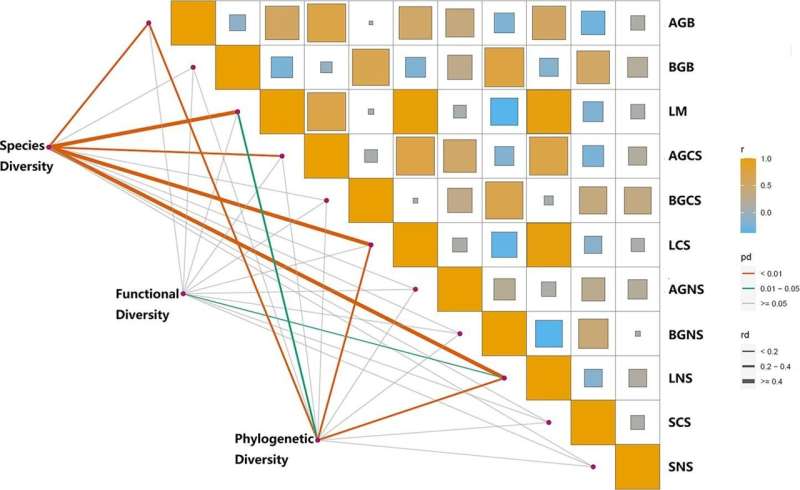Precipitation changes alter species diversity and ecosystem multifunctionality in desert steppe environments

Changes in precipitation patterns under global climate change affect plant biodiversity in terrestrial ecosystems, with potentially important implications for ecosystem function and processes.
However, knowledge about how altered precipitation affects different aspects (e.g., species, functional, and phylogenetic diversity) of plant community diversity and how these impacts propagate to affect ecosystem multifunctionality is limited.
Recently, researchers from the Northwest Institute of Eco-Environment and Resources of the Chinese Academy of Sciences (CAS) found that species diversity plays a more important role in mediating the response of ecosystem multifunctionality to altered precipitation.
Related results were published in Ecological Indicators.
Based on a field experiment with artificially controlled precipitation at the Urat Desert-Grassland Research Station, the researchers assessed the relationship between plant community diversity and ecosystem multifunctionality.
The results showed that increased precipitation increased plant species richness and ecosystem multifunctionality, and decreased precipitation ecosystem multifunctionality was positively correlated with precipitation gradients and plant community diversity.
The researchers also found that species diversity was significantly correlated with aboveground biomass and litter-related functions, thus forming the relationship between species diversity and ecosystem multifunctionality.
This study highlights the important role of non-dominant species in maintaining ecosystem functioning under altered precipitation. It provides a theoretical basis to biodiversity conservation and resources management under altered precipitation in desert steppes.
More information: Ya Hu et al, Species diversity is a strong predictor of ecosystem multifunctionality under altered precipitation in desert steppes, Ecological Indicators (2022). DOI: 10.1016/j.ecolind.2022.108762
Provided by Chinese Academy of Sciences





















